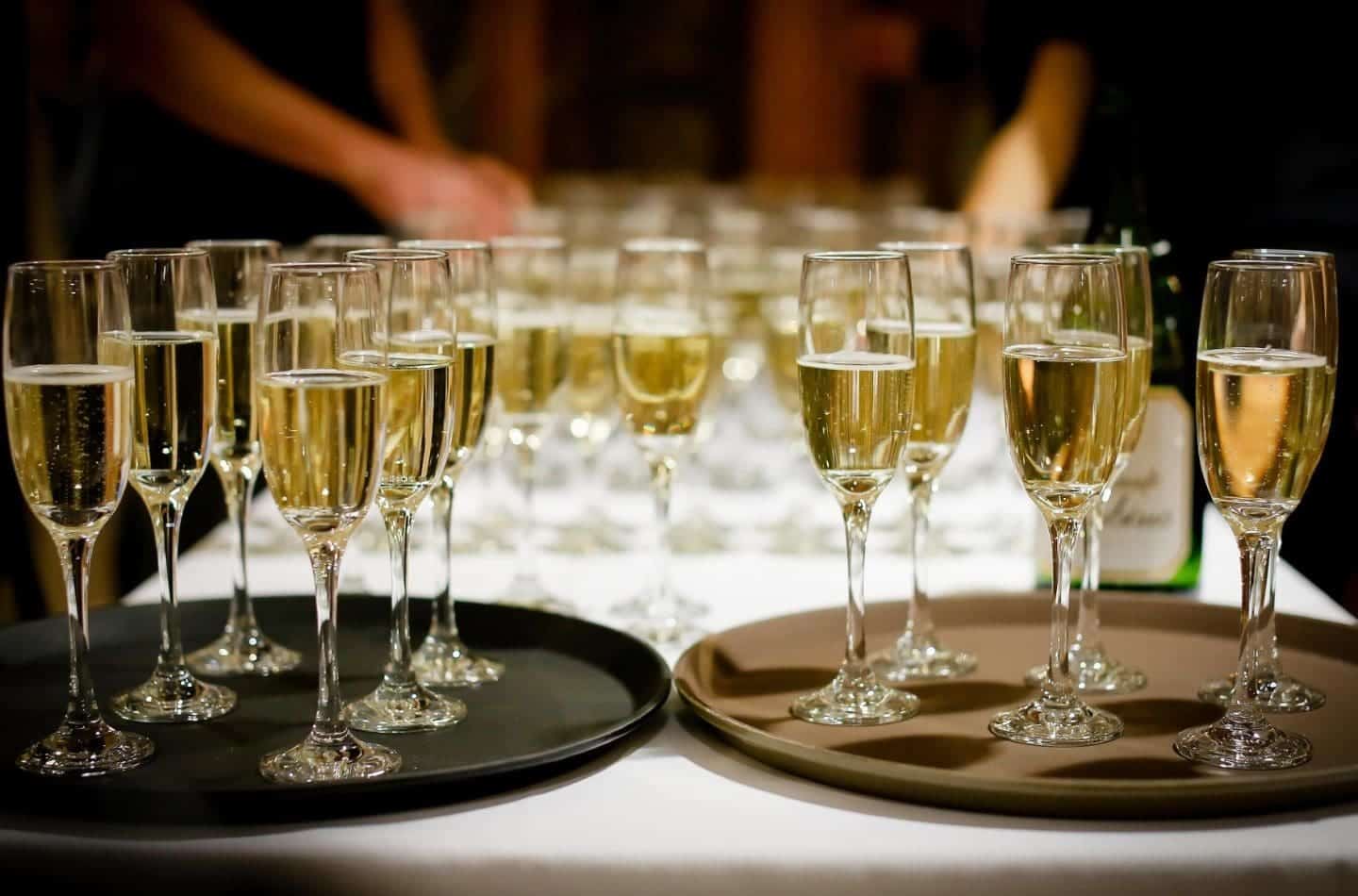For many people, Christmas is a time for family, festive cheer and, perhaps, a little too much indulgence and the aftermath often means searching for Christmas hangover cures. While the clinking of glasses and the celebratory spirit are part of the season’s charm, the inevitable consequence can be a Christmas hangover of a throbbing head and a churning stomach on Boxing Day.
Here, the Christmas.co.uk team explores both science-backed strategies and some truly bizarre hangover cures from around the world, all to help you conquer that Christmas hangover.
A note on moderation
 While the cures detailed here might offer some relief, it’s important to remember that the best hangover cure is moderation when drinking at Christmas.
While the cures detailed here might offer some relief, it’s important to remember that the best hangover cure is moderation when drinking at Christmas.
We won’t be winning a Nobel prize any time soon for highlighting that pacing yourself throughout the festivities and avoiding excessive alcohol consumption are the most effective ways to prevent a hangover in the first place.
Some people alternate an alcoholic drink with a non-alcoholic one, such as lemonade.
Don’t forget too that low or zero-alcohol beers are growing in popularity and there’s a great choice available.
The bottom line is that this advice will make your hangover less severe.
The science behind a hangover
 Before diving into cures, let’s understand the science behind the suffering.
Before diving into cures, let’s understand the science behind the suffering.
Hangovers are caused by a combination of factors, including dehydration, acetaldehyde (a toxic byproduct of alcohol breakdown), inflammation, and disruptions in blood sugar levels.
Knowing this, we can tackle the issue strategically.
Here are some science-backed hangover cures to consider:
- Hydration is key: Alcohol is a diuretic, meaning it increases urination and leads to dehydration. Replenishing fluids is crucial. Water is best – especially before going to bed – but drinks with electrolytes, like sports drinks, can also help replace lost salts and minerals and it might be worth stocking up with them beforehand ‘just in case’.
- Mixing drinks: It’s worth noting that mixing drinks – there’s an old saying ‘never mix grape and grain’ – can be an issue so not mixing should help reduce your hangover
- Switching: As mentioned above, switching between alcoholic and non-alcoholic drinks will help reduce a hangover
- Painkillers for the win: Mild pain relievers like ibuprofen or paracetamol (acetaminophen) can help reduce inflammation and ease headaches, a common hangover symptom.
- Tame the beast: Opt for stomach-settling medications like antacids to soothe nausea and indigestion. Antacids help relieve heartburn, indigestion and other symptoms caused by excess stomach acid. They work by neutralising the acid in your stomach, which can provide quick relief from these uncomfortable symptoms.
We should also mention the commercial products that are available to help prevent hangovers. We can’t speak from experience but there are products like Myrkl which is a ‘pre-drinking’ pill aimed at reducing the effects of alcohol.
Tips for a smoother recovery
- Get some sleep: Hangovers disrupt sleep patterns. Aim to catch up on some rest in a dark, cool environment.
- Light exercise: Gentle movement like a walk can help improve circulation and boost your mood. It’s probably why a Boxing Day walk to ‘blow away the cobwebs’ is so popular!
- Avoid triggers: Greasy or sugary foods might worsen nausea. Opt for bland, easily digestible options like toast or crackers.
Popular hangover hacks in the UK
 When it comes to hangovers, there’s no shortage of homegrown remedies.
When it comes to hangovers, there’s no shortage of homegrown remedies.
Here are a few popular hangover hacks in the UK:
The ‘Full English’ fry-up: It’s a classic for a reason! The greasy goodness of a fry-up provides much-needed fat and protein, which can help settle your stomach and boost energy levels. Who doesn’t want to tuck into one of the most popular hangover remedies of eggs, sausage, bacon, baked beans and toast. It might sound daunting for a delicate stomach, but the eggs contain cysteine, which may help break down toxins. Plus, some people believe that eating when you really can’t face doing so has a placebo effect and you feel better because you are taking action
- The hair of the dog: This age-old remedy involves having a small alcoholic drink the next morning. While some swear by it, there’s no scientific evidence to support its effectiveness. In fact, it can prolong the hangover.
- The Cuppa Cure: A strong cup of tea – preferably black – is a common hangover soother. The caffeine might help alleviate headaches, and the warm liquid can be soothing.
Christmas hangover cures from around the world
If the sound of a Full English while hungover makes you feel queasy, here are some truly bizarre hangover cures from around the globe.
- India: Lemon power: In India, people swear by rubbing lemon peel on their forehead to relieve a hangover. The theory? The citrus scent acts as a natural decongestant.
- Italy: Artichoke powerhouse: Italians turn to artichokes, a liver-detoxifying vegetable, for hangover relief. They are eaten whole or consumed as a tea.
- Germany: Milk thistle to the rescue: Milk thistle is a herb known for its liver-protective properties. Germans brew it into a tea specifically to combat hangovers.
- Sweden: Beef Rydberg: This dish of fried potatoes, beef, onions, and egg yolk is surprisingly light despite its richness and offers a mix of textures and flavours to tempt a weary palate.
- Mexico: Grapefruit’s detox magic: Mexicans believe grapefruit juice can help break down alcohol in the body. While the science isn’t conclusive, the vitamin C content might offer a slight boost.
- USA: The pickle juice pickle: Pickle juice, a brine concoction, is a popular hangover cure in the US. The taste is an acquired one! The tangy brine is a source of electrolytes (sodium) lost through dehydration, and some believe it helps settle the stomach. It’s also a popular choice in Eastern Europe and Russia.
- Korea: Hair of the dog: Koreans have their own twist on the ‘hair of the dog’ remedy. They will drink Haejang-guk – literally ‘hangover soup’ to help the body process leftover alcohol. Some versions are made with oxtail and coagulated ox blood, with soybean paste, soybean sprouts, scallions, chilli, and garlic.
- Mongolia: Pickled sheep’s eyes: We think most people will give this cure a swerve but in Mongolia, a traditional hangover cure involves drinking a cocktail of pickled sheep’s eyes in tomato juice. While it might not sound appetising, the high salt content could help replenish electrolytes.
- Czech Republic: Utopenci: Utopenci, or pickled sausages, are a popular hangover remedy in the Czech Republic. The pickling process loads the sausages with sodium, helping to balance electrolytes.
- Peru: Leche de tigre: Leche de tigre, or ‘tiger’s milk,’ is the leftover marinade from ceviche, a Peruvian dish of raw fish cured in citrus juice. Its acidity and spiciness are believed to stimulate the senses and stomach.
- Ecuador: Oregano tea: This herbal brew is known for its digestive benefits and may soothe an upset stomach.
Another choice for people in Asia struggling with a hangover is coconut water.
We also liked the unverified recommendation of munching salt and vinegar crisps that drinkers around the world appear to do – mainly because it’s something we have tried, and most people would enjoy!
To be fair, this might be more about distraction and a bit of salt for electrolytes, but lots of people swear by it!
Conquering the festive hangover
Christmas is a time for entertaining friends and family and attending parties, but overindulgence can lead to a less-than-merry aftermath.
By understanding the science behind hangovers and implementing effective strategies, you can alleviate those unpleasant symptoms and enjoy a more pleasant morning after. Simple steps like moderating your alcohol intake, alternating with non-alcoholic drinks, and staying hydrated can significantly improve your experience.
You will also have an effective way of enjoying your festive event and drink alcohol without having to suffer quite so much the next day!





